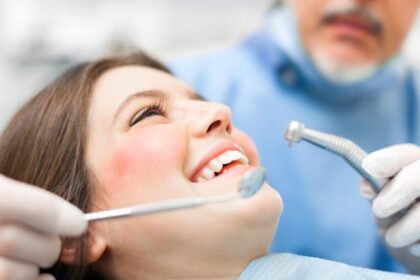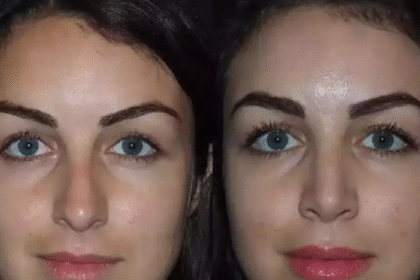Dental trauma can happen suddenly, from falls, sports injuries, or biting something hard. In these cases, acting quickly isn’t just helpful, it’s essential. Seeing an emergency dentist straight away could mean the difference between saving or losing a tooth.
This guide explains how urgent dental care helps prevent long-term damage and outlines what to do if you or a loved one experiences dental trauma.
What Counts as Dental Trauma?
Dental trauma refers to injuries that affect your teeth, gums, or jaw. These incidents are often painful and can lead to serious complications if not treated in time.
Common causes include:
- Knocked-out (avulsed) teeth
- Cracked or fractured teeth
- Tooth dislocation
- Deep chips with exposed nerves
- Damage to braces, crowns, or fillings
- Swelling or bleeding in the mouth after impact
Prompt care at a mount waverley emergency dentistry clinic can reduce the risk of infection, nerve damage, or permanent loss.
How an Emergency Dentist Responds to Trauma
When you visit an emergency dentist mount waverley, the focus is on preserving the tooth and relieving pain. Treatment depends on the type and severity of injury.
A dentist may:
- Reinsert a knocked-out tooth if seen within 30–60 minutes
- Stabilise loose or dislodged teeth with splints
- Provide root canal therapy if the nerve is damaged
- Seal cracks or fractures to prevent infection
- Control bleeding and prescribe antibiotics if needed
- Refer to a specialist if further surgical care is required
The sooner you act, the more options your dentist has to save the tooth.
Why Timing Is Everything After Dental Trauma
When it comes to dental trauma, every minute matters. A dental injury might not seem urgent at first, but delaying treatment can quickly turn a manageable problem into a long-term issue. Whether you’ve suffered a knocked-out tooth, a cracked tooth, or severe oral pain, immediate action can make the difference between saving or losing a tooth.
For instance, if a tooth is knocked out, it has the best chance of survival if it’s replaced in the socket within 30 to 60 minutes. After that, the chances of successful reattachment drop significantly.
Risks of Delayed Treatment
Ignoring dental trauma or waiting too long to see a dentist can lead to:
-
Tooth death due to nerve exposure
If a tooth’s nerve is exposed or damaged, it can quickly die, leading to the need for root canal treatment or extraction. -
Infections in the root or surrounding tissues
Even small injuries can allow bacteria to enter, causing infections that may spread or require antibiotics and further treatment. -
Bone loss in the jaw
Losing a tooth and not replacing it promptly can cause the jawbone to deteriorate, which complicates future dental restorations. -
Complex restorations
Delayed care can lead to the need for crowns, bridges, implants, or dentures—treatments that are more invasive and costly. -
Higher treatment costs
Emergency intervention is often simpler and more affordable than long-term repairs for untreated trauma.
That’s why seeing an emergency dentist in Mount Waverley as soon as possible is the best move for your health, comfort, and wallet.
What to Do Before You Reach the Clinic
Knowing how to react right after dental trauma can help protect your teeth and reduce complications before professional treatment is available. Here are simple, effective first-aid steps:
First Aid for Dental Trauma
-
Knocked-Out Tooth
Pick up the tooth by the crown, not the root. Rinse it gently with clean water (no scrubbing), and try to place it back in the socket. If that’s not possible, keep it in a container of milk or your own saliva to help preserve the root. -
Bleeding
Use a clean cloth or gauze to apply gentle pressure on the affected area. Keep pressure on until the bleeding stops or you receive dental care. -
Swelling
Apply a cold compress to the outside of the cheek near the injury. This helps reduce inflammation and numbs the area slightly, easing discomfort. -
Pain
Take over-the-counter pain relief such as paracetamol or ibuprofen—avoid aspirin, as it can increase bleeding. -
Chewing
Don’t chew on the injured side. Stick to soft foods until you’ve seen the dentist.
Once you’ve followed these steps, call your local Mount Waverley emergency dentist and explain the situation. They can provide further guidance and book an urgent appointment.
Fast Action Saves Teeth
Dental trauma can be distressing, but it’s important not to panic. What you do in the first few minutes matters most. Acting quickly not only reduces pain but also significantly increases the chance of saving the injured tooth and preserving your natural smile.
By contacting a Mount Waverley emergency dental clinic immediately, you ensure you’re getting the right care when you need it. Many local clinics offer same-day appointments for trauma cases, helping you recover faster and avoid long-term complications.
FAQs
How long do I have to save a knocked-out tooth?
Ideally, the tooth should be reinserted within 30 to 60 minutes. After that, the chances of successful reattachment decrease rapidly.
What if my tooth is cracked but doesn’t hurt?
Even if there’s no pain, a crack can worsen or allow bacteria in, leading to infection or breakage. It’s best to have it checked by a dentist.
Can I go to any dentist for a dental emergency?
Not all dentists provide emergency care. Look for a clinic that specifically offers emergency dental services to ensure fast and appropriate treatment.
Don’t wait when dental trauma strikes. Fast action protects your health, saves teeth, and prevents long-term damage. If you’re in Mount Waverley and need urgent dental help, call your local emergency dentist right away.




